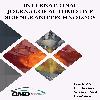The Design and Simulation of Adaptive Cruise Control System
In this study, an Adaptive Cruise Control system is designed by using conventional Proportional Integral Controller (PID) and Model Predictive Controller (MPC). In the design, vehicle, acceleration, and deceleration models are constructed in a way to sim-ulate the real-life environment. The design and simulation were carried out through Matlab and Simulink. In order to investigate the effects of gains in the PID controller, several values for Kp, Ki, and Kd is tested. The simulation results illustrated that the gains Kp and Kd have negligible effects on the vehicle acceleration but the gain Ki has a substantial effect on the response of the ego car. The results of PID controller were compared with the results when the controller is replaced by MPC. It has been shown that the PID controller gives better results as compared to the MPC controller inde-pendent from Kp, Ki, and Kd values. Therefore, we can confidently state that the PID controller provides better responses in addition to its accessibility, simpler design, and cost advantages compared to the MPC controller.
___
- [1] Türkiye İstatistik Kurumu (TÜİK) [Internet]. TÜİK. [cited 2021Mar17]. Available from: https://tuikweb.tuik.gov.tr/PreHaberBultenleri.do;jsessionid=Sqdhg09GhPBbfpStMJ4Pq11SrvydJxwVsSpKWDK2GlJbLn7fmCHr!1955124248?id=37411
- [2] Mohtavipour M, Gohari HD, Shahhoseini H. Improvement of Adaptive Cruise Control Performance by Considering Initialization States. Universal Journal of Control and Automation. 2015Sep; 3:53–61.
- [3] Awad S, Colella D, Shaout A. Computer Engineering Conference. In: Advanced Driver Assistance Systems- Past, Present and Future. 2011. p. 72–82.
- [4] Kılıç İ. Radar Algılayıcısı Tabanlı Uyarlamalı Hız Kontrol Sistemi [thesis]. 2016.
- [5] IIHS. Real-world benefits of Crash Avoidance Technologies [Internet]. IIHS. Highway Loss Data Institute; 2020 [cited 2021Oct8]. Available from: https://www.iihs.org/media/259e5bbd-f859-42a7-bd54 3888f7a2d3ef/e9boUQ/Topics/ADVANCED%20DRIVER%20ASSISTANCE/IIHS-real-world-CA-benefits.pdf
- [6] Ding YS, Ying H, Shao S. PI And PD Fuzzy Controllers Analytical Structures and Stability Analysis. Information Sciences. 20n.d. May; 151:245–62.
- [7] Ying Y, Solomon OO. 5th International Conference on Mechanical, Automotive and Materials Engineering. In: Research on Adaptive Cruise Control Systems and Performance Analysis Using Matlab and Carsem. 2017. p. 249–53.
- [8] Sivaji VV, Sailaja M. Adaptive Cruise Control Systems for Vehicle Modeling Using Stop and Go Manoeuvres. International Journal of Engineering Research and Applications. 2013;3(4):24.
- [9] Luo L, Liu H, Wang H, Li P. Model Predictive Control for Adaptive Cruise Control with Multi-Objectives: Comfort, Fuel-Economy, Safety and Car-Following. Journal of Zhejiang University Science A. 2010; 11:191–201.
- [10] Günay R. Modeling and Experimental Study of Adaptive Cruise Control System [thesis]. 2019.
- [11] Kamesh K, Madhusoodanan A, Gajendran A. ESE-519: Autoplug adaptive cruise control - group-008 [Internet]. ACC. [cited 2021May8]. Available from: https://autoplug.blogspot.com/2012/12/ese-519-autoplug-adaptive-cruise.html?view=timeslide
- [12] Naranjo JE, Gonzalez C, Garcia R, Pedro TD. CC+Stop&Go Maneuvers with Throttle and Brake Fuzzy Control. IEEE Transactions on Intelligent Transportation Systems. 2006Jun; 7:213–23.
- [13] Shakouri P, Ordys A, Laila DS, Askari M. 18th IFAC World Congress. In Adaptive Cruise Control System: Comparing Gain-Scheduling PI and LQ Controllers. Milano; 2011. p. 12964–9.
- [14] Rajamani R, Zhu C. Semi-autonomous adaptive cruise control systems. IEEE Transactions on Vehicular Technology. 2002Sep; 51:1186–92.
- [15] Adaptive Cruise Control System Using Model Predictive Controller [Internet]. MATLAB & Simulink. [cited 2021Oct22]. Available from: https://www.mathworks.com/help/mpc/ug/adaptive-cruise-control-using-model-predictive-controller.html
- Yayın Aralığı: Yılda 4 Sayı
- Başlangıç: 2016
- Yayıncı: Otomotiv Mühendisleri Derneği
Sayıdaki Diğer Makaleler
Investigation of Vibration Isolation for Different Types of Engine Mounts
Abdurrahman KARABULUT, Hakan ŞAHMAN, Bahri Şamil KORKMAZ
Habib GÜRBÜZ, Himmet Emre AYTAÇ, Hüseyin Cahit HAMAMCIOĞLU, Hüsameddin AKÇAY
Investigation of Vehicle Engine Driving Comfort Used in Vibration Dampers
Abdurrahman KARABULUT, Hakan ŞAHMAN, Bahri Şamil KORKMAZ
Bahri Şamil KORKMAZ, Abdurrahman KARABULUT
Investigation of Mechanical Properties of St52 and S460MC Steels Joined by Gas Welding
Yiğit OKUROĞULLARI, Oktay ÇAVUŞOĞLJU, Mümin TUTAR, Hakan AYDIN
Nuri ŞEN, Tolgahan CİVEK, Necati BEKTAŞ
